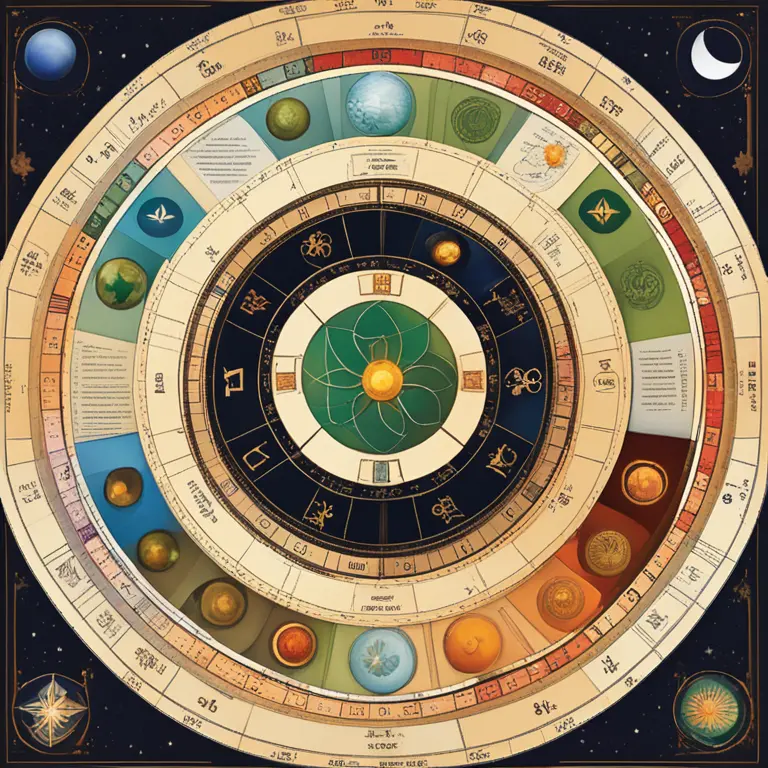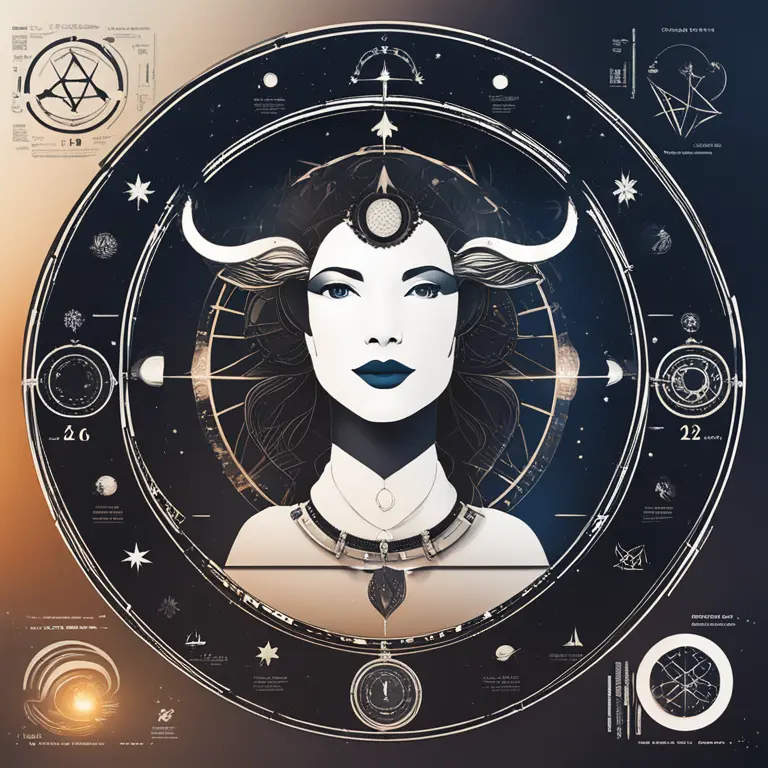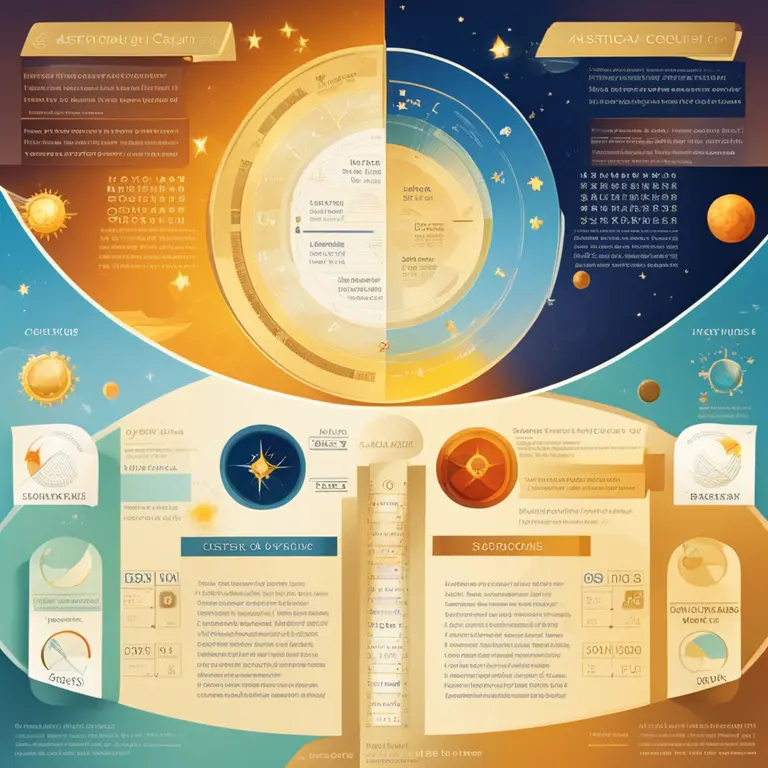
The Reality of Astrological Cusps: Myth or Fact?
Delve into the concept of astrological cusps to discover if they hold a genuine place in astrology or are merely a popular misconception.
article by Priya Deshmukh
Introduction to Astrological Cusps
Astrology is steeped in the belief that celestial bodies influence our lives, but the truth behind astrological cusps remains one of its most debated topics. A cusp is said to occur when the sun transitions from one zodiac sign to another. Individuals born during this period are often thought to exhibit traits from both signs. However, modern astrology offers a more complex interpretation of such instances, scrutinizing whether these cusps truly affect one's astrological profile or if they are simply an oversimplification of a more intricate astrological system.

Clarifying the Cusp Controversy
The concept of cusps seems straightforward, yet astrologers are divided on their authenticity. While some practitioners claim that being born on a cusp allows a blend of characteristics from adjacent signs, skeptics argue that the planets, including the sun, occupy precise degrees within the zodiac at any given time. Consequently, an individual must belong to one sign or the other, not both. As astrology progresses into 2024 and beyond, precision mapping of planetary positions continues to challenge the validity of cusps, encouraging a re-examination of these transitional periods.

The Birth Chart Perspective
Deepening the analysis of cusps requires examining individual birth charts. Astrology hinges on the exact positions of celestial bodies at the moment of birth, which dictates one's sun sign. A birth chart is a personal celestial snapshot, and it reveals that the complexities inhabiting our personality are influenced by more than just the sun sign. This suggests that the layered nature of an individual's character may not be due to the influence of cusps, but rather a myriad of astrological factors detailed in their unique chart.

Cusp Impact on Personality Traits
Those who support the cusp theory argue that overlapping qualities of adjacent zodiac signs produce nuanced personalities. However, if one takes a closer look at astrology's fundamental principles, it becomes evident that other planetary aspects play a significant role in shaping a person's traits. Planetary influences, such as moon and rising signs, contribute far more intricately to one's identity than the general attributes of sun sign cusps. It's this intricate web of astrological aspects that dissects and refines a person's disposition.

Defining the Boundaries in Astrology
In traditional astrological practice, the zodiac is clearly divided into 30-degree segments for each sign, with no blending between them. Each sign starts and ends at a specific point. Acknowledging this, modern astrology often dismisses cusps as relics of an outdated understanding of astrology. With the advance of astronomical software and precise calculation tools available in 2024, astrologers can pinpoint exact celestial positions, further challenging the concept of cusps as a significant influence in astrological readings.
The Role of Pop Astrology
The widespread popularity of cusps can also be attributed to pop astrology, which simplifies complex astrological concepts for mainstream audiences. Pop astrology glosses over the intricacies of detailed astrological analyses, preferring to provide accessible, albeit oversimplified, takes on planetary influences. While cusps fit neatly into this framework, they may not withstand the scrutiny of in-depth astrological study which offers a more comprehensive and personalized approach.
Published: 1/12/2024
Modified: 1/12/2024
More predictions
Come back here soon to learn more about yourself and your future


Do Zodiac Signs Reflect Your True Self?
Discover the connections between zodiac signs and personality traits in this insightful look into astrology's relevance to our lives.


Astrology: The Depths of Water Signs
Dive into the depths of the Water Element in Astrology and discover the intuitive and emotional nature of Cancer, Scorpio, and Pisces.


The Essence of Zodiac Water Signs
Delve into the depths of the Zodiac's Water signs: Cancer, Scorpio, and Pisces, and their profound influence on personality, emotions, and relationships.